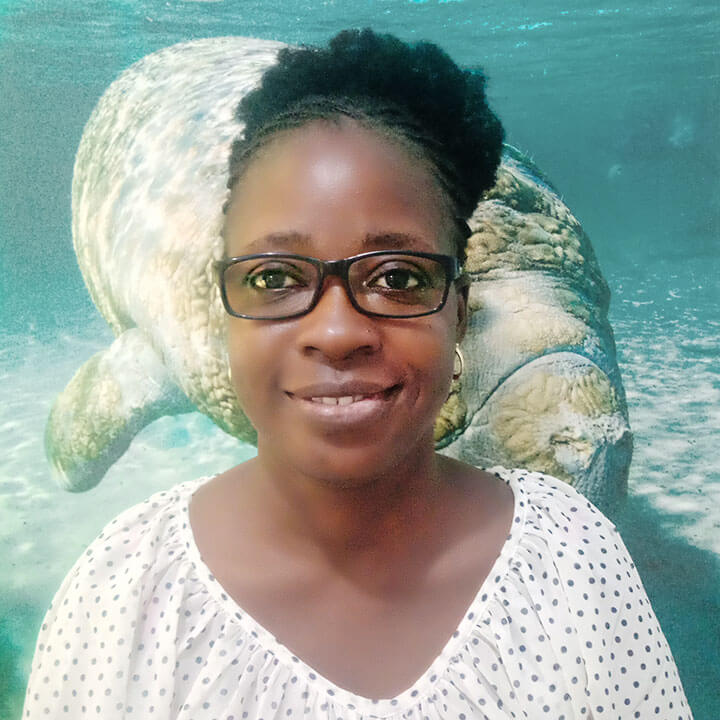
Octavie Y. Chantal Somakpo
Aquatic Wild Life Conservation Researcher, Western Africa
Octavie Y. Chantal Somakpo was born in Porto-Novo, Benin. She holds a Master’s degree in geography with a specialisation in regional planning. Passionate about environmental issues, she considered it important to do her professional training in one of the NGOs working in the protection of natural resources and ecosystems in Benin.
In order to have a greater understanding of the essence of integrated water resources management and water stewardship she attended a professional course organised by the Wageningen UR Centre for Development Innovation.
In July 2019, she joined the OceanCare aquatic wildmeat team within BEES as a young researcher with a focus on the West African manatee. She participated in data collection on this species in western Africa, working with a dedicated team.
The goal of the study is to better understand the developing practice of fishermen and hunters in south Benin and Togo hunting, catching, and trading African manatees. The African manatee has been designated an endangered species by the IUCN. She and her colleagues are researching the factors that influence fishermen to seek, capture, and culture the animals in fish pond enclosures.


